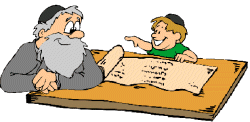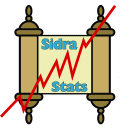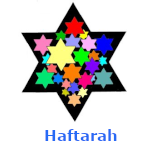Balak
בָּלָק
Numbers 22:2 – 25:9
Balaam’s “Curse”
When Balak, son of Tzippor, saw what Israel had done to the Amorites, the Moabites became afraid.Moab said to the elders of Midian, “Now the Israelites will lick up everything around us like a bull licks up vegetation.” Balak was the King of Moab and he sent emissaries to Balaam, son of Beor, to his home in Pethor with the following message; “A nation that covers the land’s surface has left Egypt and is now staying right near us. The nation is too powerful for us alone, so if you would, come and curse this nation for me. Then we may be able to defeat them, because I know that whomever you bless is blessed, and whomever you curse is cursed.”
The elders of Moab and Midian, said to be magicians, delivered this message to Balaam and he told them: “Spend the night and when HaShem speaks to me and I will be able to give you an answer.”
HaShem appeared to Balaam and asked: “Who are these people here with you?”
Balaam replied to HaShem: “Balak, son of Tzippor, King of Moab has sent a message to me. He says that a nation that covers the earth has left Egypt. Come curse them for me so that I can hopefully drive them away.”
HaShem said, “Do not go with them. Do not curse the nation in question because it is a blessed nation.”
When Balaam got up in the morning he said to Balak’s dignitaries, “Go home! HaShem refuses to let me go with you.”
They went home and told Balak, “Balaam refuses to go with us”.
Balak sent another delegation that was larger and higher in rank than the first. When they came to Balaam they said to him this message from Tzippor: “Do not refuse to come to me . I will give you great honor, doing anything you say. But please, come and curse this nation for me.”
Balaam interrupted Balak’s servants and said, “Even if Balak gave me his whole palace full of gold and silver, I would not be able to do anything great or small that would violate the word of HaShem. But remain here overnight and by morning I shall know what HaShem wants me to do.”
That night HaShem appeared to Balaam and said, “If the people have come to summon you, set out and go with them. But only do exactly what I instruct you.”
When Baalam got up in the morning, he saddled his donkey and went with the Moabite dignitaries, but he did not tell them that he was going only as a counselor and that he would not be able to curse the people. This angered HaShem, who placed an angel in Balaam’s way to oppose him.
Balaam was riding his female donkey along the road, accompanied by his two servant boys, when suddenly the donkey turned off the road and headed into the field. The donkey had seen HaShem’s angel standing in the road with his sword drawn, but Balaam could not see the angel, and he beat the poor donkey to get it back on the road. Farther down the road, in a narrow pass between the vineyard fences, HaShem’s angel appeared again. When the donkey saw the angel, she edged over to one side, crushing Balaam’s foot against the wall, and Balaam beat the animal even more.
HaShem’s angel continued ahead, to a narrow place where there was no room to turn left or right. When the donkey saw the angel, she lay down in the road and refused to budge even though Balaam lost his temper and beat the donkey with a stick. And HaShem opened the mouth of the donkey, and it said to Balaam, “What have I done to you that you should beat me these three times?”
“You have been playing games with me,” Balaam shouted the donkey, “and if I had a sword in my hand just now I would have killed you!”
Said the donkey to Balaam, “Am I not the same old donkey you’ve been riding all your life long? Have I ever acted like this before?”
“No,” replied Balaam. Then HaShem opened Balaam’s eyes, made him able to see the angel standing in the road with his sword drawn. Balaam knelled down in the road and prostrated himself before the angel.
“Why did you beat your donkey these three times?” HaShem’s angel asked Balaam. “I came to oppose you because your errand is obnoxious to me and each time your donkey saw me, she turned aside from me. Three times she did this and if she had not, I would have killed you and spared the donkey.”
“I have sinned,” Balaam said. “If you consider it wrong for me to go, I will go back home.”
“Go with the men,” HaShem’s angel told Balaam. “But do not say anything other than the exact words I tell you.”
So Balaam continued on with Balak’s dignitaries. When they arrived at Moab, a city at the edge of his territories, Balak went out to meet Balaam. “I had to go to a lot of effort to get you to come here. Why didn’t you come right away? Didn’t you think I could properly honor you?” he asked.
And Balaam replied, “And now that I’m here, do you think I can say anything? I have been permitted to come to you, but as far as the people of Israel are concerned, I can only say the words that HaShem puts in my mouth.”
They traveled on to the city’s suburbs, where Balak sacrificed cattle and sheep, and shared them with Balaam and the dignitaries who were with him. Then, in the morning, Balak took Balaam to the top of a mountain, to the High Alters of Baal and from that high point Balaam could see the Israelite’s camp in the distance.
“Build seven alters for me here,” Balaam instructed, “and prepare seven bulls and seven rams.” When it was done, Balaam and Balak sacrificed the animals on the alters and Balaam went off to meditate.
HaShem appeared to Balaam, placed a message in his mouth and then said to him, “Go back to Balak and say exactly these words I have given to you.”
Balaam returned to Balak and the princes who were with him and he said, “Balak, King of Moab, has brought me from Aram, telling me to curse Jacob, and to conjure divine wrath against Israel. But what curse can I pronounce if HaShem will not grant a curse? What divine wrath can I conjure if HaShem will not be angry? I see these people from this great mountain top: It is a nation that lives alone and at peace, not counting itself among other nations. Who can count the dust of Jacob? Who can count his decedents? Let me die the death of the righteous, let my end be like his!”
At this, Balak was outraged. “What have you done to me? I brought you to curse my enemies, but instead, you’ve made every effort to bless them!”
Balaam interrupted him, “Didn’t I tell you that I must be very careful to say only what HaShem tells me?”
“If you would ,” replied Balak. “come with me to another place. There you will be able to see only a small section of the Israelite camp, and you will not have to see them all. From there you may be able to curse them for me.”
With that, he took Balaam to Lookout Field at the top of the cliff. There he built seven altars and offered a bull and a ram on each altar. “Keep a vigil here with your burnt offering,” said Balaam to Balak, “and I will go yonder to seek a vision.”
HaShem appeared to Balaam and placed a message in his mouth. “Return to Balak, and declare exactly what I have told you,” HaShem reminded Balaam.
When Balaam returned, Balak and the Moabite dignitaries were standing vigil over the burnt offering. “What has HaShem declared?” asked Balak.
Balaam proclaimed “Rise, Balak, and listen: Pay close attention to this insight, son of Tzippor. HaShem is not human that He say one thing and do another: It is a blessing that I have taken and when there is such a blessing I can not reverse it. HaShem does not look at wrongdoing in Jacob, HaShem sees no vice in Israel. HaShem is with them and they have the King’s friendship. Since HaShem brought them out of Egypt, they are HaShem’s highest expression of strength. No black magic can be effective against Jacob, and no occult powers effective against Israel. ‘How is HaShem acting?’ is the only question pertinent to Jacob and Israel. This is a nation that rises like the king of beasts and lifts itself like a lioness. It does not lie down until it has eaten its prey and drunk the blood of its kill.”
Balak said to Balaam, “If you can’t curse them, at least don’t bless them!”
Balaam interrupted and said to Balak, “My exact words to you were, ‘I will do precisely what HaShem declares,’ weren’t they?”
“If you would, let’s go on,” said Balak. “I will take you somewhere else. Hopefully, HaShem will consider it proper to let you curse them from there.”
Balak took Balaam to the top of the peak that overlooks the Wasteland. Balaam said to Balak, “Build me seven altars here, and prepare for me here seven bulls and seven rams.” Balak did as Balaam had instructed him, and sacrificed the seven bulls and seven rams.
When Balaam realized HaShem desired to bless Israel, he did not seek out the occult forces as he had done before. Instead, he set his gaze toward the desert. When Balaam raised his eyes and saw Israel dwelling at peace, tribe by tribe, HaShem’s Spirit was upon him. He proclaimed: “This is the word of Beor’s son Balaam, the word of the man with the enlightened eye. It is the word of one who hears HaShem’s sayings, who sees a vision of the Almighty, falling into a trance with mystical insight. How good are your tents, Jacob, your tabernacles, Israel. They stretch like streams, like gardens by the river, like they are the aloes HaShem has planted, like cedars by the water. His dipper shall overflow and his crops shall have abundant water. When their kingdom is established, their king shall be greater than Agag. Since HaShem brought them out of Egypt, they are like HaShem’s highest expression of strength. HaShem will devour enemy nations, grinding their bones and piercing them with arrows. Israel crouches, lies like a lion, like an awesome lion, who will dare rouse them? Those who bless you are blessed, those who curse you are cursed.”
Furious at Balaam, Balak said, “I brought you to curse my enemies, but you have blessed them these three times! Now go home as fast as you can. I promised to honor you, but HaShem won’t let you get any honor!”
Balaam said, “My exact words to the messengers you sent me were, ‘Even if Balak gives me a whole palace full of gold and silver, I cannot do anything good or bad that would violate HaShem’s word.’ Isn’t that true? I must proclaim what HaShem declares. Now I am returning to my people, but first I will advise you about what this nation will do to your people in the final days. This is the word of Beor’s son Balaam, the word of the man with the enlightened eye. It is the word of the one who hears HaShem’s sayings and knows the Highest One’s will. I see it, but not now, I perceive it but not in the near future. A star shall go forth from Jacob, and a staff shall arise in Israel, crushing all of Moab’s princes, and dominating all of Seth’s descendants. Edom shall be demolished, and his enemy Seir destroyed, but Israel shall be triumphant. Out of Jacob shall come an absolute ruler who will obliterate the city’s last survivors.”
When Balaam saw Amalek, he proclaimed his oracle and said, “First among nations is Amalek, but in the end he will be destroyed forever.”
When Balaam saw the Kenites, he proclaimed his oracle and said, “You live in a fortress and have placed your nests in a cliff. But when the time comes to destroy the Kenites, how long will Assyria hold back from you?” “Alas! Who can survive HaShem’s devastation? Warships shall come from the ports of the Kittim, and they will lay waste to Assyria and Eber. But in the end they too shall be destroyed forever.”
With that Balaam set out and returned home. Balak also went on his way.
Israel Sins with Moab
Israel was staying in Shittim when the people began to behave immorally with Moabite girls. The girls invited the Israelite people to their religious sacrifices, and the people ate and worshiped the Moabite gods. That is how Israel became involved with Baal Peor, and HaShem displayed anger against Israel [by bringing plague].
HaShem said to Moses, “Take the people’s leaders and have them impale the idolaters publicly before me. This will reverse my display of anger against Israel.”
Moses said to Israel’s judges, “Each of you must kill your constituents who were involved with Baal Peor.” As the judges stood at the Communion Tent entrance, weeping in despair and indecision, an Israelite came forward with a Midianite woman [for an immoral purpose], in front of Moses and the Israelite community. When Pinchas, son of Eleazar and grandson of Aaron the priest, saw this he rose up from amongst the congregation and took up a spear in his hand. He followed the Israelite man into the tent’s inner chamber, and he drove the spear through the man and woman’s groin.
With that, the plague that had struck the Israelites was stopped. In that plague, 24,000 people had died.
Haftarah Connection

Micah 5.6-6.8
In this week’s Parsha Balak hires Bilam to curse the nation of Israel. But every time he tries to utter a curse twards them it becomes a blessing.
In the Haftara the prophet Micah reminds the people of Israel about Bilam and his blessings towards Israel. As long as they do the mitzvot that they are supposed to do, they will continue to receive blessings.
Sidra Stats

- Fortieth of 54 Sedras in the Torah
- Written on 178 lines in the Sefer Torah
- 104 P’sukim (verses)
- 1,455 words
- 5,357 letters
Next week’s Parashat: Pinchas


